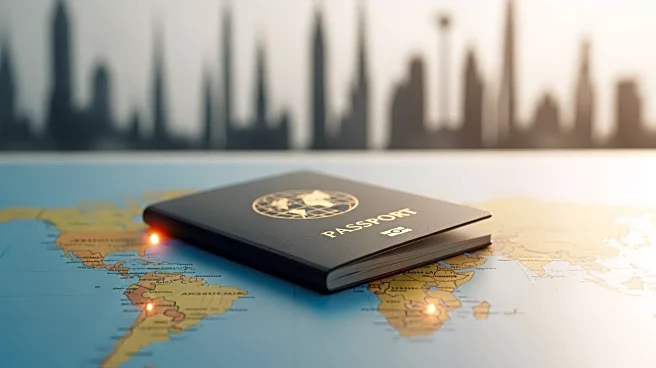What's Happening?
The Henley Passport Index has revealed a decline in the power of the US passport, which now grants access to 180 destinations, down from its previous ranking. This decline is attributed to policy changes by other countries, such as Brazil revoking visa-free
entry for Americans and China excluding the US from visa exemptions extended to European nations. The US passport's weakening is seen as a reflection of changing global mobility and soft power dynamics, with countries embracing openness moving forward while those relying on outdated advantages lagging behind.
Why It's Important?
The decline in US passport power highlights broader geopolitical shifts and the impact of US foreign policy on global mobility. As countries reassess their diplomatic relations and trade policies, the US faces challenges in maintaining its influence. This situation may drive Americans to seek alternative citizenships to mitigate jurisdictional risks and improve personal and financial prospects. The trend suggests a growing interest in investment migration programs, indicating a shift in how Americans view global mobility and citizenship.
What's Next?
The ongoing changes in global mobility may lead to increased interest in alternative citizenships among Americans, as they seek to navigate the complexities of international travel and diplomatic relations. This could result in a rise in investment migration programs and a reevaluation of US foreign policy to address the imbalance in visa-free access. Additionally, the US may need to consider diplomatic strategies to improve its standing in the global passport rankings.
Beyond the Headlines
The decline in US passport power may have ethical and cultural implications, as it challenges the notion of American exceptionalism and prompts a reevaluation of national identity in a multipolar world. The trend towards seeking alternative citizenships could lead to cultural shifts in how Americans perceive their place in the global community, potentially fostering a more inclusive and diverse understanding of citizenship.















